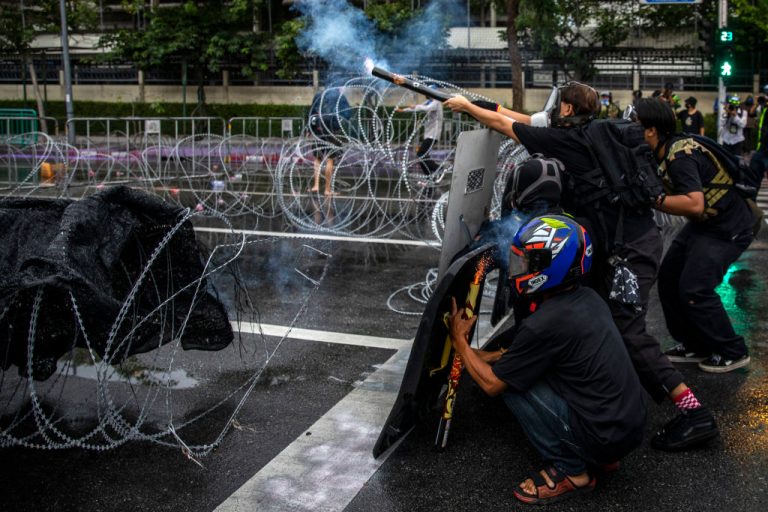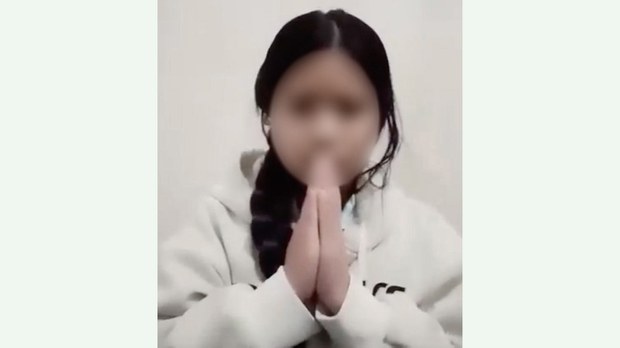On Jan. 13, the international organization, Human Rights Watch (HRW), released a 752-page report listing the world’s human rights issues and providing a broader view of what numerous countries are doing in the face of dissent and suffering among their people.
While some countries, notably China, have a long list of cases, several countries together in Southeast Asia all possess issues of their own that warranted noting in the report.
HRW emphasized the methods several governments and leaders use to expand their own power, sacrificing the needs and protections of their own citizens.
Most of the cases are related to suppression of freedoms and acts of violence, while the COVID-19 pandemic is shown to have had a significant impact on the countries as well.
Cambodia
In its report, HRW made note of Cambodian Prime Minister Hun Sen’s tendency to use the COVID-19 pandemic to fuel his own ambitions by “further restricting civil and political rights,” and by depriving the country’s people of the government’s protection.
Success
You are now signed up for our newsletter
Success
Check your email to complete sign up
In an attempt to silence opposition to their rule, the government held trials for political rivals and human rights defenders, suppressing their freedom of expression. Environmental activists were also intimidated with convictions and were placed under suspicion of conspiring against the government.
Lockdowns that were supposed to protect the people of Cambodia from COVID-19 only locked them away from needed supplies. People who violated lockdown regulations were beaten in the capital of Phnom Penh with bamboo canes, in addition to being sentenced to 20 years in prison. Despite the brutal conditions, the government failed to curb major outbreaks within the “prison population,” which further helped spread the pandemic.
Access to the Internet was also suppressed when the government implemented a bill to monitor and block connections at will. The HRW report also described how the government moved against independent reporting, characterizing it as “fake news” and only allowing state-controlled media, or “invited” media, to report on police actions or pandemic-related issues.
HRW also condemned the government’s lack of action in investigating the “unlawful” killing of political commentator Kem Ley, as well as the abduction of Thai activist Wanchalerm Satsaksit.
After a color-based zoning system was introduced in April, residents in “red zones”, low-income populations, suffered from a “lack of adequate standard of living.”
Despite Cambodia rising to the chairmanship of the Association of Southeast Asian Nations (ASEAN), HRW also noted the country’s strengthened ties with the communist government of China, while also pointing out the government’s handling of political opposition.
Myanmar
Following the military junta’s successful coup against the democratic government of Myanmar, several human rights issues followed that the HRW emphasized in their report.
Apart from forceful political decisions, the military began expanding its violent campaigns against many groups of the population. Protestors and bystanders were killed in response to the junta’s repressions against dissent, while many others were said to be persecuted.
Local militia have begun to emerge and challenge the junta with armed force. Martial law was imposed in March and May 2021 across townships in response to the resistance, but it resulted in the deaths of innocent bystanders. The Rohingya ehtnic group, victims of genocide since 2017, continue to be victimized by the military.
Humanitarian aid and healthcare workers were also endangered by armed conflict and the junta itself, with both deaths and imprisonment threatening the efforts by humanitarians to address issues in the nation.
Vietnam
The HRW report describes the suppression of “basic civil and political rights” by the Vietnamese government, which claims to act under the one-party rule of the Communist Party of Vietnam (CPV). As a result, political opponents, as well as dissidents and rights activists, were slapped with “harassment, intimidation, arbitrary arrest and imprisonment.”
Vietnam also tightened its control over the media by cutting off websites and blogs, as well as removing content on social media and imposing fines on people suspected of spreading misinformation.
The report also mentions the restriction of religious practice “through legislation, registration requirements, and surveillance.”
Abuses against women and children were also noted in the report, where guardians, teachers, or government caregivers were involved in the cases.
Indonesia
In a country riddled with millions of COVID-19 cases and hundreds of thousands of deaths, it is believed that the actual death toll in Indonesia is much higher.
Indonesia’s Corruption Eradication Commission was weakened by the government, which also introduced a criminal code with many abusive articles. Religious minorities, both non-Sunni and non-Muslim, are also being persecuted by regulations for apparent blasphemy.
According to the HRW report, the lands of the archipelagic nation are purged by environmental degradation due to plantations allowed to operate, resulting in the degradation of “one of the world’s most important carbon sinks.”
The country was also described in the report as one of the world’s largest emitters of greenhouse gasses, with coal-fired power stations causing thousands of premature deaths by air pollution – a problem that affects other countries, especially Malaysia.
Forests across the nation are also being cleared for the sake of “development.”
Despite the HRW’s condemnation of Indonesia’s shortcomings, the report did make note of the country’s role in excluding Myanmar junta leader Min Aung Hlaing from the ASEAN summit in October 2021.
Malaysia
With another sudden change of leadership following the resignation of Prime Minister Muhyiddin Yassin in August, the political quagmire in Malaysia continues with more restrictive and punishing policies against numerous groups.
Satirical content against the government was suppressed while the government made arrests of artists and activists. Freedom of the press also suffered a blow as authorities moved to question members of news sites over coverage on the government’s actions and its handling of the pandemic.
The report also mentions the abuse of suspects by the police, and the insufferable conditions of detainees succumbing to treatable illnesses.
In the report, over 179,000 refugees and asylum seekers, mainly from Myanmar, are not granted legal status and are ineligible for work and school. As of Oct. 26, 2020, 756 children are reported to be held in immigration detention – 326 from Myanmar who are without their parents.
Malaysia also continues to allow child marriage “under both civil and Islamic law,” with girls under 17 being eligible for marriage with the “permission of their state’s chief minister.”
Thailand
The HRW report condemns the government of Thailand for clamping down on “free expression and assembly” by arresting activists and critics of the monarchy, while using the pandemic as a scapegoat. Violent youth-led democracy protests were heavily suppressed with “excessive force” with water cannons, teargas and rubber bullets.
In September 2021, the government’s draconian Emergency Decree on Public Administration in Emergency Situation was extended to November to further restrict freedoms of expression. Emergency powers were used to prosecute those who expressed criticism of the monarchy, including children. Democracy activists were also arrested for cases of lese-majeste (insulting the monarchy).
Thailand is also said to be rife with cases of torture and enforced disappearances, with HRW documenting cases of the torture of ethnic Malay Muslims and military conscripts in counterinsurgency operations. Many have claimed that they were tortured while being under military custody and questioning.
The government is also said to have not made any progress in investigating the 2010 political confrontations with the United Front for Democracy Against Dictatorship – dubbed the “Red Shirts” – which resulted in 99 deaths and more than 2,000 injuries. No military personnel or government officials have been charged.
Apart from human rights defenders, non-governmental organizations (NGO) were subjected to a new proposed law that allows authorities to arbitrarily reject their registration, with criminal charges of up to five years in prison and fines of more than 100,000 Thai baht ($3,225).
Ethnic Malay Muslims and asylum seekers continue to be attacked by authorities – the former being abused or even killed by security forces, who remain unprosecuted.
Singapore
HRW slams the government of Singapore for having “little freedom of assembly” by introducing draconian laws that suppress online content, classifies individuals as “politically significant persons”, and impose restrictions on the “right to peaceful assembly” without permission.
Other laws also target activists and media “critical of the government.” In February 2021, activist Jolovan Wham was charged for peaceful protests and “unlawful assembly”. Independent media outlet The Online Citizen has been “repeatedly targeted” for its articles supposedly criticizing the government.
Despite the government retaining the death penalty, the justice system has been able to bypass the penalty and instead give prison sentences to low-level offenders. Corporal punishment is also rampant in Singapore, with healthy males between the ages of 16 and 50 being punished by caning..
HRW also accuses the government of exploiting and abusing the rights of foreign migrant workers, with debts, non-payments and even physical or sexual violence used to further humble workers. With the pandemic, migrant workers have been further restricted at home except for work.
Philippines
The HRW report denotes the human rights abuses committed in the Philippines, with investigations by the International Criminal Court (ICC) for “crimes against humanity” during President Rodrigo Duterte’s “war on drugs” from 2016 to 2019.
In September, the ICC allowed a formal investigation into suspected crimes against humanity until the Philippines’ withdrawal from the Rome Statute on March 16, 2019. The anti-drug campaign was described as an illegal law enforcement operation that threatens the civilian population.
Government security forces continue to target leftist activists, including peasant leaders, environmentalists, human rights lawyers and indigenous group leaders, among others.
Rights violations related to the pandemic were also notably fewer in 2021 compared to the year prior, with “age-based restrictions on movement” for those under 18 and over 65 keeping children and the elderly at home, but the restrictions were softened in October. Thousands have been arrested for violating strict quarantine regulations and have been struck with warnings, fines and community service.

















